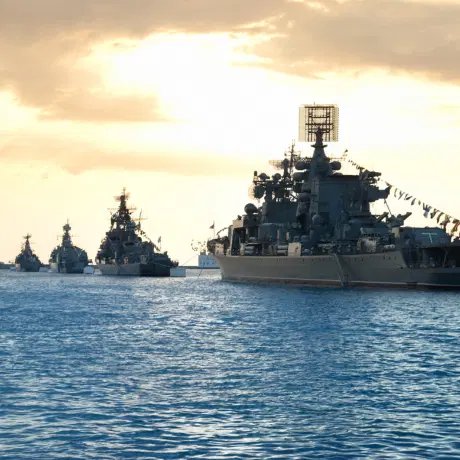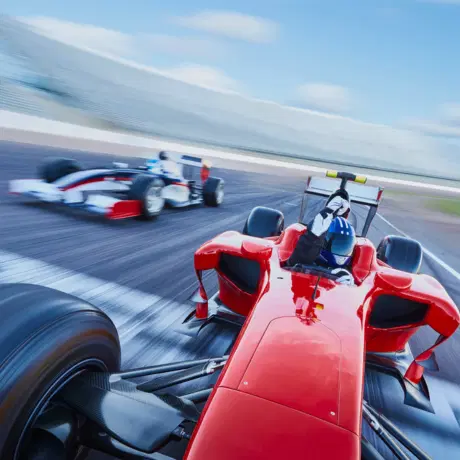Steel 40CDV12 - 40CrMoV12 - FE-PL1507
40CDV12 is a low-alloy chrome-molybdenum-vanadium steel commonly used in the aerospace industry. It is valued for its excellent nitriding capability, providing high wear resistance. Discover all the essential information about its characteristics, heat treatments, and conditions of use.
Available shapes :
Order 40CDV12 Online
Select the desired form, standard, or specification and place your order with one click. A member of our sales team will contact you promptly to finalize your order.
Nitriding steel 40CDV12
The 40CDV12 steel is a low-alloy chromium-molybdenum-vanadium steel used for its nitriding capability. Undesirable elements in its chemical composition (phosphorus, sulfur) are kept at very low levels (≤0.02% each). This composition provides excellent hardenability and allows the formation of hard nitrides on the surface during thermochemical treatments (thanks to Cr and V). There is also the E40CDV12, a version produced under vacuum using VAR remelting. This process is chosen to achieve better chemical homogeneity, directional solidification, and especially effective reduction of dissolved gases (O, N, H). By avoiding impurities, the alloy becomes more resistant to fatigue : therefore, E40CDV12 is preferred for certain critical applications.
Mechanical properties
Once heat-treated (quenched and tempered), 40CDV12 achieves high performance with tensile strength between 900 and 1100 MPa (up to 1470 MPa in higher-quality grades). Its yield strength ranges around 700 to 1050 MPa, and it typically presents elongation at break of 12 to 15%.
However, the main advantage of 40CDV12 is the very high hardness achieved after nitriding: the nitrided surface layer can reach ~800 HV, in some optimized cases, providing excellent wear resistance.
Heat and surface treatments
40CDV12 is optimized for a combination of heat treatments and nitriding:
- Soft annealing: Heating to 680–720 °C, slow cooling to facilitate machining. This condition facilitates machining of the raw part due to a softened ferritic-pearlitic structure.
- Quenching: Austenitization at 870–970 °C followed by rapid cooling (preferably in oil). Quenching forms hard martensite.
- Tempering: At 580–700 °C depending on desired mechanical properties (lower temperature = higher strength, higher temperature = better toughness).
- Nitriding: Thermochemical treatment at 480–570 °C under a nitrogen-rich atmosphere (gas or plasma) forming a hard surface layer for better wear resistance (typical thickness of 0.3–0.6 mm). Nitriding significantly enhances surface wear and contact fatigue resistance (pitting), while maintaining a relatively ductile core.
- Other possible treatments (light oxidation, PVD coating) depending on specific requirements.
Comparison with other aeronautical steels
Compared to Ni-Cr-Mo steels (30NCD16, 35NCD16), it offers improved wear resistance but has lower weldability and slightly reduced toughness when seeking extreme strengths. 40CDV12 is ideal when surface hardness and wear resistance are prioritized, whereas other grades would be selected based on welding, corrosion resistance, or very high bulk strength criteria.
Examples include:
- 32CDV13: Lower carbon content, better toughness, slightly lower strength, similar excellent nitriding performance.
- 35NCD16: Very high internal strength, better core toughness but less suitable for deep nitriding (lower surface hardness).
- 15CDV6: Excellent weldability and ductility, similar mechanical strength, but limited nitriding capability.
- Maraging and PH stainless steels: Extreme strength or corrosion resistance but less suitable for surface nitriding.
Machinability and processing
The processing of 40CDV12 requires certain precautions but remains comparable to other heat-treatable alloy steels.
Its machinability is satisfactory in the annealed condition, and forming requires the same care as other steels (control of treatments, avoiding overheating and overly aggressive treatments). It becomes more challenging to work after heat treatment.
Careful forging at high temperature (1000–1150 °C) followed by controlled cooling is recommended.
The main caution relates to welding, which should be avoided or performed with strict precautions. Welding requires preheating and post-weld heat treatment.
Finally, nitriding demands particular attention to avoid excessive embrittlement of the surface layer.
Advantages and limitations
Advantages:
- Excellent combination of surface hardness and core strength.
- High wear and fatigue resistance.
- Good dimensional stability up to ~300 °C.
- Well-established steel with a solid history in aeronautics.
Limitations:
- Difficulty in welding.
- Critical requirement for well-controlled nitriding.
- Slightly lower toughness compared to other Ni-Cr-Mo alloy steels.
Chemical composition of 40CDV12
The variations in its chemical composition for aerospace.
| % | C Carbon | Cr Chromium | Mn Manganese | Mo Molybdenum | Ni Nickel | P Phosphorus | S Sulfur | Si Silicon | V Vanadium | W Tungsten |
|---|---|---|---|---|---|---|---|---|---|---|
| Min. | 0.35 | 3.00 | 0.40 | 0.80 | <0.00 | <0.00 | <0.00 | 0.10 | 0.15 | <0.00 |
| Max. | 0.43 | 3.50 | 0.70 | 1.10 | 0.30 | 0.020 | 0.020 | 0.35 | 0.25 | 0.030 |
Related steel alloys
12NC12, FE-PL61
ROUND BAR
15CDV6, 15CrMoV6, 1.7734, 1.7736, AIR 9160
SQUARE BAR, RECTANGULAR BAR, ROUND BAR, WIRE, SHEET, ROUND TUBE
16NCD13, 1.6657, 14NiCrMo 13-4
ROUND BAR
25CD4S, 1.7218, 25CrMo4, FLE-PL1502
RECTANGULAR BAR, ROUND BAR, SHEET, SQUARE TUBE, ROUND TUBE
300M, A646, K44220
SQUARE BAR, ROUND BAR
30CD12, 1.8515, 30CrMo12, 31CrMo12, FE-PL1501
ROUND BAR
30CND8, 1.6580, 30CrNiMo8
ROUND BAR
30NCD16, 1.6747, 30NiCrMo16-6, FE-PL2107, 30Ni4CrMoA
SQUARE BAR, RECTANGULAR BAR, ROUND BAR
32CDV13, 1.8522, 33CrMoV12, FE-PL1504
ROUND BAR
35CD4, 1.7220, 34CrMo4, 35CrMo4, FE-PL1503
ROUND BAR, ROUND TUBE
35NC6, 1.5815, 35NiCr6, FE-PL2102
SQUARE BAR, HEXAGONAL BAR, RECTANGULAR BAR, ROUND BAR, WIRE
35NCD16, 1.6773, 36NiCrMo16, FE-PL2108
SQUARE BAR, RECTANGULAR BAR, ROUND BAR
40CAD6-10
ROUND BAR
40NCD7, 40NiCrMo7
ROUND BAR
42CD4
ROUND BAR
45SCD6
ROUND BAR
C75S
SHEET
DC04, Fe P04, St 14, ES
SHEET
E15CDV6
ROUND BAR, SHEET
E16NCD13
ROUND BAR
E32CDV13
RECTANGULAR BAR, ROUND BAR
E35NCD16
ROUND BAR
E40CDV12
ROUND BAR
E4330, 4330 Mod, A646 Grade 5
ROUND BAR
FER PUR
SHEET
GENRE STUB
ROUND BAR
S145F
SQUARE BAR, RECTANGULAR BAR
S145H
ROUND BAR
S534
SHEET
S97D
ROUND BAR
S98D
ROUND BAR
S99
ROUND BAR
X210CR12
ROUND BAR
X30Cr13, Z30C13
ROUND BAR
XC18S
ROUND BAR, SHEET, ROUND TUBE
XC38
ROUND BAR
Z230KDWVC11
ROUND BAR
Key properties
The most remarkable properties of this steel alloy
Tensile Strength
1250-1400 MPa
Impact Toughness
≥600 kJ/m²
Yield Strength
≥1050 MPa
Brinell Hardness
≤285







